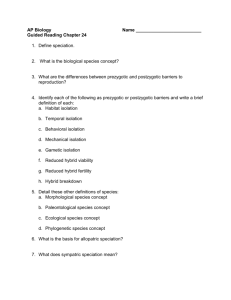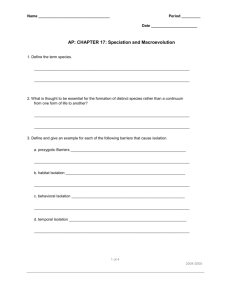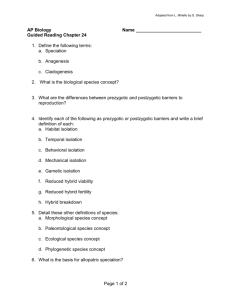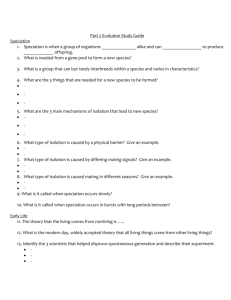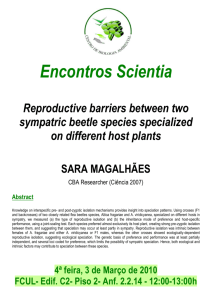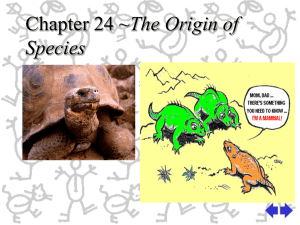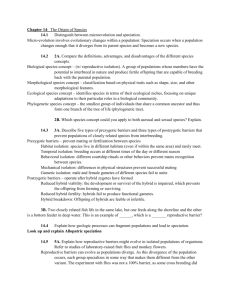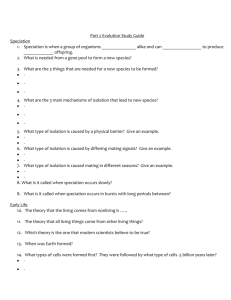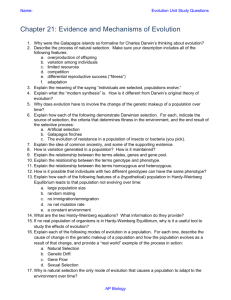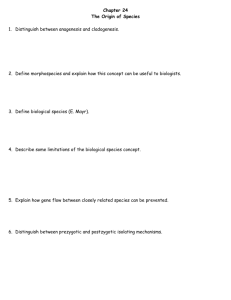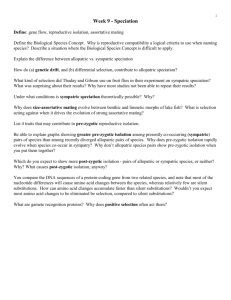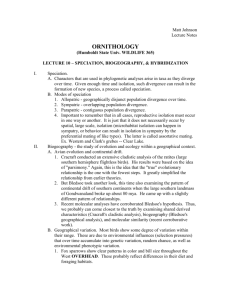Lecture 6: Speciation (The Origin of Species)
advertisement
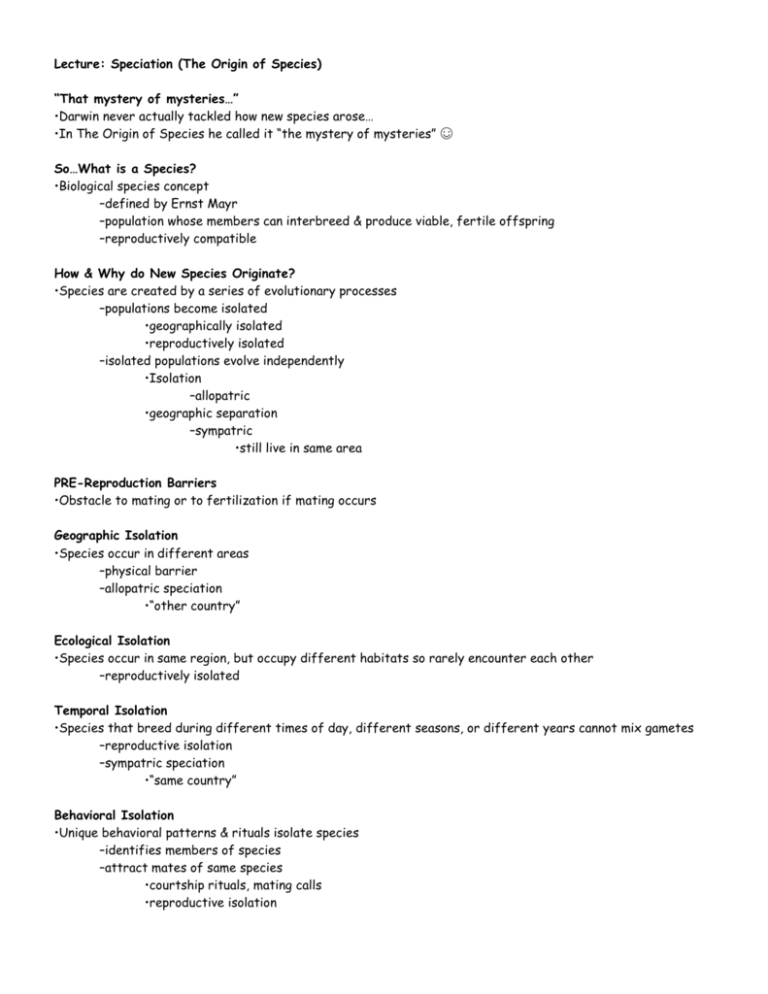
Lecture: Speciation (The Origin of Species) “That mystery of mysteries…” •Darwin never actually tackled how new species arose… •In The Origin of Species he called it “the mystery of mysteries” ☺ So…What is a Species? •Biological species concept –defined by Ernst Mayr –population whose members can interbreed & produce viable, fertile offspring –reproductively compatible How & Why do New Species Originate? •Species are created by a series of evolutionary processes –populations become isolated •geographically isolated •reproductively isolated –isolated populations evolve independently •Isolation –allopatric •geographic separation –sympatric •still live in same area PRE-Reproduction Barriers •Obstacle to mating or to fertilization if mating occurs Geographic Isolation •Species occur in different areas –physical barrier –allopatric speciation •“other country” Ecological Isolation •Species occur in same region, but occupy different habitats so rarely encounter each other –reproductively isolated Temporal Isolation •Species that breed during different times of day, different seasons, or different years cannot mix gametes –reproductive isolation –sympatric speciation •“same country” Behavioral Isolation •Unique behavioral patterns & rituals isolate species –identifies members of species –attract mates of same species •courtship rituals, mating calls •reproductive isolation Mechanical Isolation •Morphological differences can prevent successful mating –reproductive isolation •For many insects, male & female sex organs of closely related species don’t fit , preventing sperm transfer Gametic Isolation •Sperm of one species may not be able to fertilize eggs of another species •biochemical barrier so sperm cannot penetrate egg –receptor recognition: lock & key between egg & sperm •chemical incompatibility –sperm cannot survive in female reproductive tract POST-Reproduction Barriers •Prevent hybrid offspring from developing into a viable, fertile adult –reduced hybrid viability –reduced hybrid fertility –hybrid breakdown Reduced Hybrid Viability •Genes of different parent species may interact & impair the hybrid’s development Reduced Hybrid Fertility •Even if hybrids are vigorous they may be sterile –chromosomes of parents may differ in number or structure & meiosis in hybrids may fail to produce normal gametes Hybrid Breakdown •Hybrids may be fertile & viable in first generation, but when they mate offspring are feeble or sterile Rate of Speciation •Current debate: Does speciation happen gradually or rapidly? –Gradualism •Charles Darwin •Charles Lyell –Punctuated equilibrium •Stephen Jay Gould •Niles Eldredge Gradualism •Gradual divergence over long spans of time –assume that big changes occur as the accumulation of many small ones Punctuated Equilibrium •Rate of speciation is not constant –rapid bursts of change –long periods of little or no change –species undergo rapid change when they 1st bud from parent population
